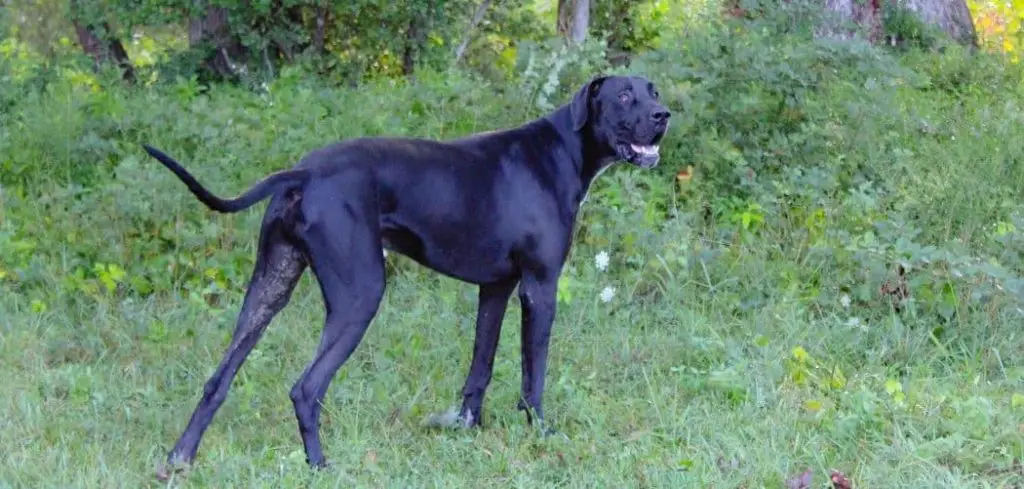It can be confusing for dog owners to notice clear mucus in their dog’s poop, especially if the dog seems completely normal otherwise.
While the dog may appear healthy and playful, mucus in the stool is often a sign that something is happening inside the digestive system.
We outline the common causes of clear mucus in a dog’s poop but a dog acting normal, what you can do at home, and when to seek veterinary help.
Table of Contents
Clear Mucus in Dog Poop but Acting Normal — Why It Happens
Clear mucus in a dog’s poop is usually a sign of the intestines producing extra lubrication. This may occur from mild digestive upset, diet changes, parasites, or even food intolerances. Sometimes, it can also happen during recovery from constipation or diarrhea, when the intestines are still irritated.
In many cases, if the dog is acting normal, the issue may be temporary. However, persistent mucus can point to underlying problems that deserve attention.

Clear Mucus in Dog Poop but Acting Normal: Common Causes
Mild Dietary Upset
Dogs often experience mild stomach and intestinal irritation when their diet suddenly changes or they eat something unusual.
Clear mucus can form as a protective coating when the colon becomes slightly inflamed.
If your dog is otherwise happy, eating, and playing, this might resolve within a day or two. Still, repeated episodes should be monitored closely.
Read more: What Does White Mucus in Dog Poop Mean? (Understanding the signs)
Food Intolerance or Sensitivity
Some dogs are sensitive to certain proteins, grains, or additives in their food. This can cause their colon to produce mucus even when they appear healthy overall.
Owners may notice occasional soft stools or changes after switching kibble or introducing new treats.
Food sensitivity may not cause immediate illness, but it can lead to long-term gut irritation if not addressed.
Intestinal Parasites
Worms or microscopic parasites like giardia can irritate the intestinal lining, leading to mucus in the stool. In the early stages, dogs might still act normal, making it harder to spot.
Over time, though, parasites can cause weight loss, diarrhea, or lethargy. A fecal test from the vet is the only way to confirm this.
Recovery from Constipation or Diarrhea
Sometimes mucus is seen after a dog has recently had constipation or diarrhea. The intestines naturally produce mucus to protect and repair the gut lining after irritation.
In these cases, dogs may act normal during recovery, and the mucus gradually decreases as the gut returns to balance.
Stress or Environmental Changes
Stress from moving homes, being boarded, or changes in routine can affect a dog’s digestive tract.
Some dogs develop temporary mucus in their stools during these times without showing other concerning symptoms.
The intestines are highly sensitive to stress hormones, which can lead to short-term irritation.
Early Signs of Inflammatory Bowel Disease (IBD)
While less common in dogs that appear otherwise normal, clear mucus can sometimes be an early sign of IBD. This condition involves chronic inflammation in the intestines.
Dogs with IBD may act normal in the beginning, but over time they often develop diarrhea, appetite changes, or weight loss. Persistent mucus in stool should not be ignored.
What to Do If Your Dog Has Clear Mucus in Poop but Is Acting Normal
If your dog is otherwise bright and healthy, you can monitor them at home for a few days. Offering a bland diet of boiled chicken and rice may help soothe the gut.
Ensure they always have access to fresh water, and avoid giving them table scraps or new treats during this time.
Keep a close eye on their stools over the next several days. If the mucus clears up quickly and doesn’t return, it was likely a minor issue.
However, if it continues, keep track of when it happens and what your dog has been eating. This information is very useful for your vet.
Regular parasite prevention is important, as parasites are a common cause of mucus. If your dog isn’t on a prevention plan, consult your vet about testing and treatment.
When to Call or Visit Your Vet
Even if your dog is acting normal, persistent mucus in stool should not be overlooked. Contact your vet if the mucus lasts more than a few days or keeps returning. Bring a stool sample with you, as this can help with diagnosis.
Seek veterinary care sooner if the mucus is accompanied by blood, diarrhea, vomiting, weight loss, loss of appetite, or signs of pain.
These may indicate more serious digestive conditions that need prompt treatment.
If your dog has not been dewormed recently or is overdue for parasite prevention, scheduling a check-up is strongly recommended.
Read more: What Causes Excess Mucus in Dog Poop (When to be concerned)
Key Takeaway
Clear mucus in dog poop but acting normal can be caused by minor digestive irritation, food sensitivity, parasites, or recovery from bowel upset. While it may not seem urgent if the dog appears healthy, repeated or persistent mucus should always be evaluated by a vet.
With careful monitoring, supportive home care, and veterinary guidance when needed, most dogs recover well from mild digestive issues. Staying alert helps ensure small warning signs don’t develop into bigger health problems.
